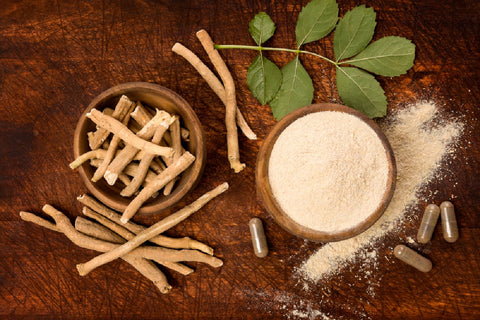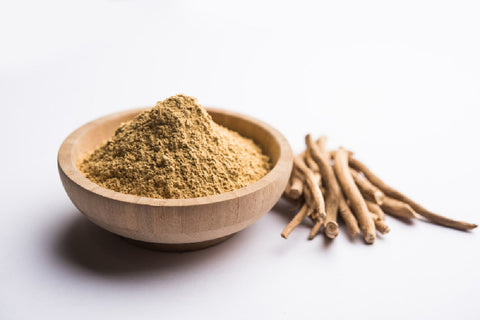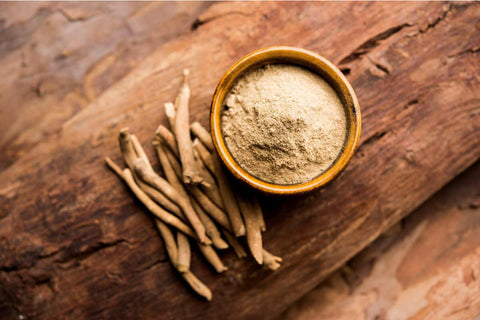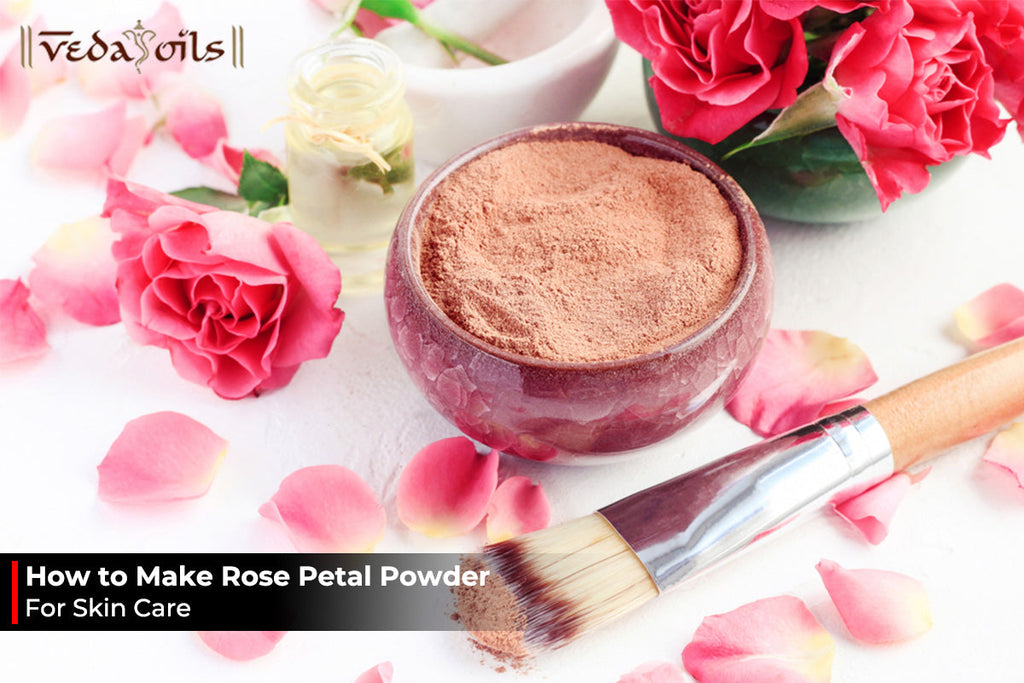Ashwagandha Powder For High Blood Pressure: Benefits & DIY Recipe
According to Ayurveda, Ashwagandha includes compounds that relax the brain, reduce swelling, regulate blood pressure, and change the immune system. It is one of the most effective plants in the book of Ayurveda, India's traditional school of medicine, and has been used to treat a variety of health concerns. Ashwagandha is a harmless herb gaining popularity globally.

But what do you know about its potential to control blood pressure? Ashwagandha is an adaptogenic herb that lowers blood pressure while also reducing inflammation and stress, which can contribute significantly to the onset of blood pressure and other health concerns in the human body. In this post, we'll look at the benefits of Ashwagandha Powder for High Blood Pressure and how it treats high blood pressure.
Can Ashwagandha Reduce High Blood Pressure?
Ashwagandha is an excellent Ayurvedic herb for controlling stress, anxiety, low testosterone, diabetes, and autoimmune illnesses. But that's not all; this potent Ayurvedic plant is also one of the most popular home treatments for lowering high blood pressure or hypertension. Yes, you read it correctly.

If you have high blood pressure, visit your doctor and add the appropriate amount of Ashwagandha, a superb Ayurvedic herb, to your diet. Stress is the leading cause of high blood pressure, and there is no better cure than Ashwagandha to relax your mind. The Ayurvedic herb contains a high concentration of adaptogens, which relax the mind and help with anxiety and stress. Furthermore, it can enhance your immune system.
Benefits Of Ashwagandha Powder For Hypertension
The antioxidant-rich ashwagandha powder offers a variety of hypertension-relieving qualities, which we will describe in this section of the blog. So, let's look at some of the benefits of ashwagandha powder for hypertension.
1. Antioxidant Activity
Ashwagandha is effective for lowering blood pressure because of its high antioxidant qualities, which protect your cardiovascular system from oxidative damage produced by free radicals. Ashwagandha, which is high in antioxidants, may help reduce inflammation and enhance blood vessel function, helping to manage and lower blood pressure.

2. Anti-Inflammatory Effects
If you have continual inflammation, chronic inflammation may be linked to an increased risk of high blood pressure and cardiovascular disease. Ashwagandha powder has been demonstrated to have significant anti-inflammatory qualities, which may help reduce inflammation and improve overall cardiovascular health.
3. Reduces Stress
People commonly start using Ashwagandha powder to relieve stress and anxiety because of its ability to normalize cortisol levels, a hormone released during stress. According to research, a high-concentration full-spectrum ashwagandha root extract can relieve stress in a safe and effective manner. Ashwagandha may assist in reducing blood pressure by lowering stress.

4. Improves Lipid Profile
Ashwagandha may improve lipid profiles by lowering LDL (bad cholesterol) and triglyceride levels while boosting HDL (good cholesterol). Elevated cholesterol levels increase the risk of high blood pressure and heart disease. By improving lipid levels, Ashwagandha may help to reduce blood pressure.
Ashwagandha DIY Recipe For Hypertension
To keep your blood pressure under control, mix ashwagandha powder with warm water and consume it first thing in the morning on an empty stomach. However, some add other ingredients to boost its effectiveness and flavor. Let's look at how to consume ashwagandha powder safely and effectively to lower high blood pressure.

Ingredients
- Ashwagandha Powder - 1 Teaspoon
- Honey - ½ Teaspoon
- Water - 1 Cup
Directions to Use:
Step 1: Begin by taking 1 cup of warm water and adding 1/2 teaspoon of honey. Mix well.
Step 2: Add one Teaspoon of ashwagandha powder and stir well.
Step 3: Consume carefully once everything has been thoroughly blended.
Step 4: To experience positive benefits, drink this ashwagandha powder and water mix daily for 12 weeks.
Step 5: Continue if you see positive outcomes; if you see an allergic reaction, stop immediately and consult a doctor.
Can You Take Too Much Ashwagandha?
Excessive use of anything, including Ashwagandha powder, can harm one's health. Larger doses of oral ashwagandha supplements may result in digestive problems such as stomach aches, diarrhea, and vomiting. Higher doses can cause indigestion and constipation. Thus, only one Teaspoon (1000 mg) every 24 hours is recommended. Taking less will have limited effectiveness, while taking more will result in the aforementioned adverse effects.
Side Effects Of Ashwagandha Powder
Most people who take Ashwagandha in moderation and according to their doctor's advice will not experience any adverse effects. Some people may develop moderate symptoms such as indigestion, nausea, vomiting, diarrhea, constipation, itchy rash, and loss of appetite.

Ashwagandha supplements may induce liver problems, such as itchy skin or jaundice. Thus, if you notice any of the above adverse effects, stop taking Ashwagandha powder and visit your doctor.
Conclusion
If you are thinking about using Ashwagandha to treat hypertension, you should consult with a healthcare expert, preferably a doctor or a licensed herbalist, first. Ashwagandha is generally considered safe, but it might have specific adverse effects; read more about it above. Still, Ashwagandha powder can be beneficial for lowering not only blood pressure but also anxiety, stress, and weight. Get high-quality pure Ashwagandha for yourself. Visit www.VedaOils.com to receive discounts on your first purchase.
You May Also Like:
Buy Products
Related Articles
-
 How to Make Marble Candles | DIY Marble Pillar Candle
How to Make Marble Candles | DIY Marble Pillar Candle -
 DIY Tanning Oil - Best Homemade Recipes For Tan Removal
DIY Tanning Oil - Best Homemade Recipes For Tan Removal -
 Homemade Mustache Wax: Best DIY Recipe With Natural Ingredients
Homemade Mustache Wax: Best DIY Recipe With Natural Ingredients -
 Kojic Acid vs. Glycolic Acid: Which Is Better for Skin Whitening?
Kojic Acid vs. Glycolic Acid: Which Is Better for Skin Whitening? -
 5 Best Grades of Essential Oils - The Grading System
5 Best Grades of Essential Oils - The Grading System -
 How to Make Rose Petal Powder For Skin Care Homemade Recipe
How to Make Rose Petal Powder For Skin Care Homemade Recipe
Disclaimer :- This article is intended for informational and educational purposes only and should not be considered a substitute for professional medical advice. For specific health concerns or treatment, please consult your personal physician. The article's editor, writer, and VedaOils organization do not assume any responsibility for any health outcomes resulting from the information provided. Readers are strongly encouraged to seek advice from their physician before acting on any recommendations made in these articles.
















 Sign in
Sign in Register now
Register now My Reward Points
My Reward Points









